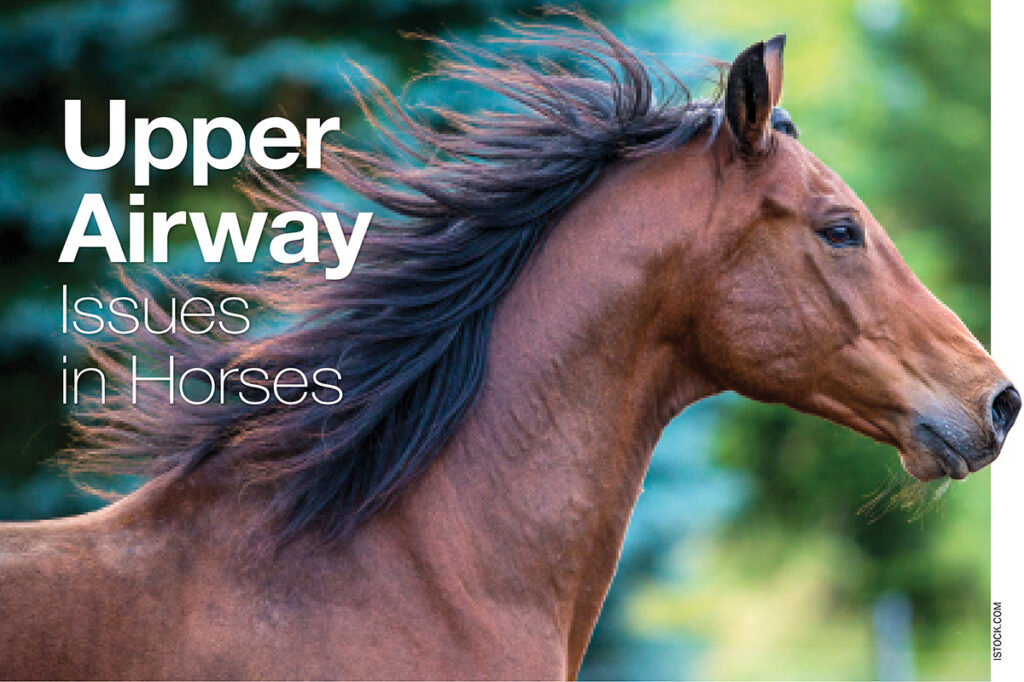
Allergen Testing Detects Equine Asthma Best in Airway Lavage Fluids
Researchers have determined that testing bronchoalveolar lavage fluid might be the most accurate way to diagnose horses with equine asthma.

Researchers have determined that testing bronchoalveolar lavage fluid might be the most accurate way to diagnose horses with equine asthma.

Researchers are working to find a way to individualize equine asthma treatment and are looking for more horses to participate in this study.

Learn more about equine asthma, acute respiratory infections, and shipping fever in horses.

Cold, dry winter air can potentially leave horses susceptible to irritation, respiratory pathogens, and bronchoconstriction.

Use this visual guide to learn about lower respiratory problems that can affect your horse.

Is your horse’s cough something to be concerned about?

Follow the steps in this visual guide to help your horse breathe easier.

Learn about recent research on the causes of EIPH, how it affects horses and their performance, and furosemide use in equine athletes.

This inflammation of the lungs most commonly affects foals, but that doesn’t mean your mature horse isn’t at risk.

Veterinary intervention can make itchy horses more comfortable and keep allergies under control. Sponsored by Kinetic Vet.

Learn about common upper airway problems in horses and how to address them in this visual guide.

These programs designed to strengthen airway muscles might help affected horses avoid surgery.

Management changes are key to preventing and treating airway inflammation.

Training horses in the spring and summer can present some challenges. Learn how your horse’s body adapts to exercise training, how he acclimates to spring and summer weather conditions, and what you can do to help him perform at his best.

This technology has helped veterinarians diagnose upper airway dysfunction during exercise.

The equine respiratory tract is so highly specialized for exercise that even the slightest deviation from normal can limit a horse’s athletic career.
Stay on top of the most recent Horse Health news with
"*" indicates required fields